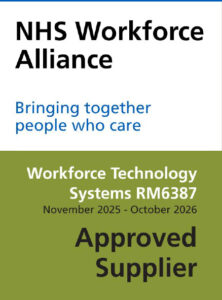The NHS Long Term Workforce Plan 2023 – A Comprehensive Strategy with Room for Further Consideration
The NHS Long Term Workforce Plan 2023 – A Comprehensive Strategy with Room for Further Consideration

The NHS Long Term Workforce Plan 2023 is a strategic blueprint that outlines the future direction of the NHS workforce. It is a comprehensive plan that focuses on three key areas: Train, Retain, and Reform. Each of these areas represents a critical aspect of the workforce strategy. This article will discuss the key takeaways from the plan as well as consider the areas that were not covered sufficiently.
Train, Retain, Reform: The Three Pillars of the Plan
Train: The NHS Long Term Plan 2023 aims to significantly increase education and training opportunities. This includes increasing apprenticeships and alternative routes into professional roles, which will result in more doctors, dentists, nurses, midwives, and other professional groups. This is a golden opportunity to address the current labour shortages in the healthcare sector.
Retain: The NHS Long Term Plan 2023 also focuses on improving culture, leadership, and wellbeing within the NHS. This includes plans to improve flexible opportunities for prospective retirees, national funding for continuing professional development for nurses, midwives, and allied health professionals, and support for the health and wellbeing of the NHS workforce.
Reform: Finally The NHS Long Term Plan 2023 proposes improving productivity by working and training in different ways, building broader teams with flexible skills, changing education and training to deliver more staff in roles and services where they are needed most, and ensuring staff have the right skills to take advantage of new technology.
While the plan is comprehensive and ambitious, its success will depend on effective implementation, sufficient resources, and buy-in from staff at all levels of the NHS. It’s also important to note that the workforce of today has different needs than the traditional workforce, and a shift in mindset is needed to effectively implement the plan.
Potential Areas for Further Consideration
While the plan covers many key areas, there are a few additional areas that could be considered:
- Diversity and Inclusion: A diverse and inclusive workforce can lead to better decision-making, greater innovation, and improved patient care.
- Mental Health Support: Healthcare workers often face high levels of stress and burnout, and providing robust mental health support can help improve wellbeing and retention.
- Technology Integration: Ensuring that technology is effectively integrated into workflows can improve efficiency and patient care.
- Patient-Centered Care: Strategies for involving patients in their own care and using patient feedback to inform workforce strategies can help ensure that the NHS continues to provide high-quality, patient-centered care.
- Climate Change and Sustainability: The plan could potentially include strategies for reducing the environmental impact of the NHS and preparing the workforce to deal with the health impacts of climate change.
The Role of AI and External Workforce Companies
The successful implementation of the plan will also depend on the effective use of technology, including artificial intelligence (AI), and collaboration with external workforce companies. AI can help improve efficiency, predict workforce needs, and support decision-making. External workforce companies, particularly those that specialize in workforce planning, can provide valuable expertise and support.
However, it’s important to ensure that the adoption of AI and collaboration with external companies is done in a way that supports the goals of the plan and the needs of the NHS workforce. This includes ensuring that staff are adequately trained to use new technologies and that collaborations are based on mutual respect and shared goals.
Potential Issues, Pushback and Resistance
The need for NHS workforce planning is not a new concept, and many attempts to promote and encourage Trusts to focus on it have stalled. This is not necessarily through any fault of the individual organisations involved, but a lack of clarity and resources to undertake the requirements.
Any large-scale change can be met with resistance, and the NHS Long Term Workforce Plan 2023 is no exception. Staff who are comfortable with current practices might be reluctant to embrace new methods or technologies. There might also be concerns about workload, job security, and the availability of resources to implement the plan.
Open communication, involving staff in the change process, and demonstrating early wins can help overcome resistance and build support for the plan. It’s also crucial to listen to the concerns of staff and take proactive steps to address any issues that arise. This includes providing reassurances about job security, ensuring that workload is managed effectively, and demonstrating that the necessary resources are in place to support the plan’s implementation.
In the face of resistance, it’s important to remember that change is often met with initial skepticism, but with time, clear communication, and demonstrated benefits, it can lead to significant improvements. The NHS Long Term Workforce Plan 2023 represents a positive step forward for the NHS, and with the collective effort of all staff, it has the potential to create a stronger, more resilient, and more effective workforce.
Conclusion
The NHS Long Term Workforce Plan 2023 is a robust strategy with a strong focus on the key areas of training, retention, and reform. However, its success will depend on effective implementation, the ability to adapt to changing circumstances, and the willingness to consider additional areas of focus.
The plan’s ambitious goals will require a significant shift in mindset, particularly as the workforce of today has different needs than the traditional workforce. This shift will need to be embraced by all levels of the NHS, from senior managers to frontline staff.
Potential pushback and resistance to the plan can be mitigated through open communication, involving staff in the change process, and demonstrating early wins. It’s also crucial to listen to the concerns of staff and take proactive steps to address any issues that arise.
The role of AI and external workforce companies will be crucial in implementing the plan. However, it’s important to ensure that the adoption of AI and collaboration with external companies is done in a way that supports the goals of the plan, the needs of the NHS workforce and ultimately has a positive impact on patient outcomes.
While the plan is comprehensive and ambitious, there are additional areas that could be considered, including diversity and inclusion, mental health support, technology integration, patient-centered care, and climate change and sustainability. These areas could further strengthen the plan and help ensure the NHS continues to provide high-quality, patient-centered care.
In conclusion, the NHS Long Term Workforce Plan 2023 is a significant step towards addressing the key challenges facing the NHS workforce. Its success will depend on the collective efforts of the entire NHS community. As senior NHS managers, it’s crucial to understand the implications of this plan and take proactive steps to support its implementation.
Please explore our past blogs and articles and be sure to follow us on LinkedIn for useful future information, tips, guides, forms, and articles.
Related Articles:
Quick Guide: Understanding the NHS Long Term Workforce Plan 2023
Recent Articles

Registered address
SARD JV Limited
Unit 76, Innovation Centre
University Road, Canterbury
CT2 7FG



A joint venture with Oxleas NHS Foundation Trust.
Registered in England and Wales with company number 07916735. VAT No. 131901840
Designed and built By Tweak Marketing
Privacy Policy



